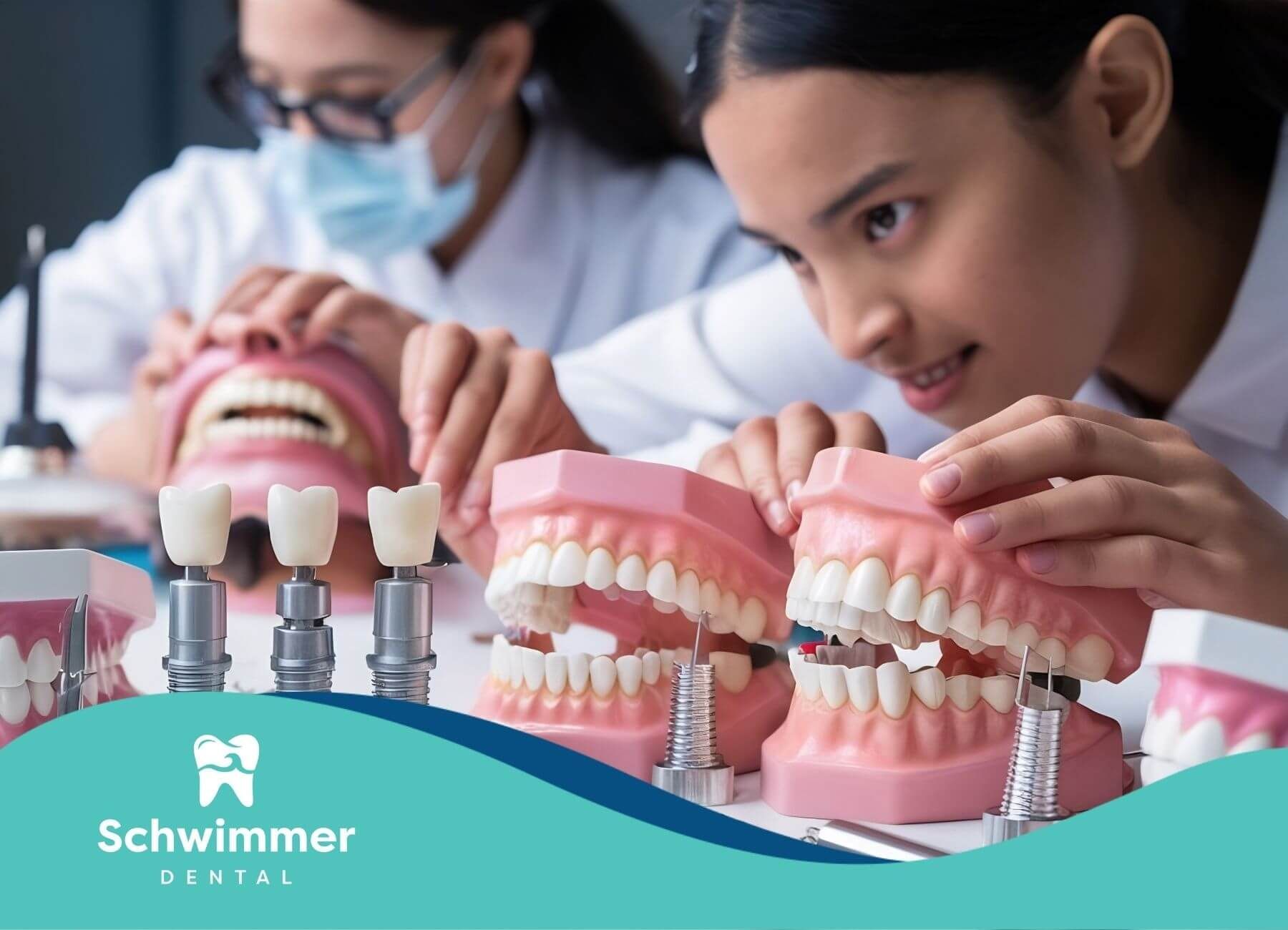Understanding Worn Down Teeth: Causes, Signs & Treatment Options
Your teeth are designed to withstand a lifetime of chewing, biting, and speaking. But over time, they can become worn down due to various habits and conditions. Worn down teeth are more than a cosmetic concern—they can lead to sensitivity, pain, and serious oral health issues if left untreated.
In this comprehensive guide, we’ll break down everything you need to know aboutworn down teeth,including their causes, symptoms, consequences, and the most effective treatment options available today.
What Are Worn Down Teeth?
Worn down teeth refer to the gradual loss of tooth enamel—the hard, outer layer of the teeth—often exposing the softer inner layers known as dentin. As enamel wears away, teeth may become shorter, flat, uneven, or more sensitive to temperature and pressure.
Tooth wear is a common dental problem and often develops slowly over time. While some degree of enamel loss is natural with age, excessive wear is usually the result of external factors or habits.
Types of Tooth Wear
There are three primary types of wear that contribute to worn down teeth:
1. Attrition
Caused by tooth-to-tooth contact, often due to grinding or clenching (bruxism). This type of wear is common in people who grind their teeth at night.
2. Abrasion
Results from external forces like aggressive tooth brushing, using hard-bristled toothbrushes, or chewing on hard objects like pens or ice.
3. Erosion
Caused by acidic substances breaking down enamel. This may come from acidic foods and drinks or medical conditions like acid reflux or frequent vomiting.
Common Causes of Worn Down Teeth
Identifying the root cause of tooth wear is essential to prevent further damage. Here are the most common contributors:
Bruxism (Teeth Grinding and Clenching)
Often occurring during sleep or under stress, bruxism puts immense pressure on the teeth, causing them to wear down unevenly over time.
Acidic Foods and Beverages
Frequent consumption of citrus fruits, soda, wine, or vinegar-based foods can erode enamel and soften teeth, making them more prone to wear.
Acid Reflux (GERD)
Chronic acid reflux can cause stomach acid to reach the mouth, damaging enamel and accelerating tooth erosion.
Overbrushing
Brushing too hard or using abrasive toothpaste can wear away enamel, especially near the gumline.
Age
Natural wear and tear occur as we age, especially if no preventive measures are taken to protect the teeth.
Misaligned Bite
If your upper and lower teeth don’t align properly, the uneven pressure can accelerate enamel wear.
Chewing Habits
Chewing on ice, pens, or hard foods can lead to mechanical wear and chipping.
Signs and Symptoms of Worn Down Teeth
Noticing early signs of wear can help you take action before more serious damage occurs. Here are common symptoms:
- Flattened, chipped, or uneven teeth
- Increased sensitivity to hot, cold, or sweet foods
- Yellowing of teeth due to exposed dentin
- Sharp or jagged tooth edges
- Tooth pain or discomfort
- Headaches or jaw pain (often related to bruxism)
- Changes in bite or difficulty chewing
If you experience any of these signs, it’s essential to see a dentist for evaluation.
Consequences of Leaving Worn Teeth Untreated
Failing to treat worn down teeth can lead to several oral health complications:
- Tooth fractures: Thinner enamel and exposed dentin increase the risk of chips and cracks.
- Tooth decay: Enamel loss makes teeth more vulnerable to cavities.
- Gum recession: Improper brushing or grinding can irritate gums and cause them to pull back.
- Tooth loss: Severe wear can compromise tooth structure and lead to tooth loss.
- TMJ disorders: Chronic grinding and clenching can strain jaw joints, leading to pain and dysfunction.
Treatment Options for Worn Down Teeth
The right treatment depends on the severity of the wear and the underlying cause. Here are some of the most effective options:
1. Dental Bonding
A quick, non-invasive solution where a tooth-colored resin is applied to the worn areas. Ideal for minor wear and improving appearance.
2. Dental Crowns
Used for more severe cases, crowns cover the entire tooth to restore its shape, strength, and function.
3. Veneers
Thin porcelain shells placed over the front of teeth to improve aesthetics and protect enamel from further wear.
4. Night Guards
Custom-made mouthguards worn during sleep to protect teeth from bruxism-related damage.
5. Orthodontic Treatment
Correcting bite alignment with braces or clear aligners can reduce uneven pressure and prevent wear.
6. Fluoride Treatments
Professional fluoride applications strengthen enamel and reduce sensitivity in early wear stages.
7. Dietary Changes
Reducing acidic food and drink intake helps prevent further enamel erosion.
8. Treatment for Underlying Conditions
If acid reflux or an eating disorder is contributing to enamel loss, addressing the medical issue is crucial.
Prevention Tips: Protecting Your Teeth From Wear
Taking proactive steps can slow or even prevent enamel wear. Here’s how:
- Use a soft-bristled toothbrush and brush gently.
- Switch to non-abrasive toothpaste and fluoride formulas.
- Wear a night guard if you grind your teeth.
- Limit acidic foods and drinks, and rinse your mouth with water afterward.
- Avoid chewing on hard objects like ice or pens.
- Stay hydrated to support saliva production and enamel health.
- Visit your dentist regularly for checkups and early intervention.
How Diet Affects Enamel Wear
What you eat plays a significant role in your enamel health. Acidic foods and drinks, such as citrus fruits, coffee, wine, and soda, can erode enamel over time. Try to:
- Eat acidic foods with meals rather than alone.
- Use a straw when drinking acidic beverages.
- Rinse your mouth with water after consuming acidic items.
- Avoid brushing immediately after eating acidic foods—wait 30 minutes to prevent damage.
Is Enamel Regrowth Possible?
Unfortunately, once enamel is lost, it does not regenerate. However, early-stage wear can be managed and remineralized using fluoride products and good oral hygiene habits. For more severe damage, restorative dental treatments are necessary to rebuild the lost structure and restore function.
When to See a Dentist
You should consult a dentist if you:
- Notice changes in your tooth shape or bite
- Experience increased sensitivity or pain
- Have visible yellowing or thinning teeth
- Suspect you’re grinding your teeth at night
Early diagnosis and treatment can prevent serious complications and save your smile.
Conclusion
Worn down teeth are a common but serious issue that can affect your comfort, appearance, and oral health. From grinding and acid erosion to aggressive brushing, many everyday habits can contribute to enamel wear. Fortunately, with proper care and professional treatment, you can restore your smile and protect your teeth from further damage.
If you’re experiencing any symptoms of worn teeth or want to explore preventive and restorative options, the dedicated team at Schwimmer Dental is here to help. Our dental experts offer comprehensive evaluations and personalized care to keep your smile strong, healthy, and beautiful.
Frequently Asked Questions
Can worn down teeth grow back naturally?
No, enamel cannot regrow once it’s lost. However, early damage can sometimes be managed with fluoride treatments and lifestyle changes to prevent further wear.
How can I tell if I grind my teeth at night?
Common signs of night grinding (bruxism) include jaw pain, headaches, flattened teeth, and morning tooth sensitivity. A dentist can evaluate wear patterns and may recommend a night guard.
Is it too late to fix worn down teeth?
It's rarely too late. With modern dental treatments like bonding, crowns, and veneers, even severely worn teeth can be restored for both function and appearance. Early intervention, however, leads to better outcomes.
Sources:
- https://www.healthline.com/health/enamel-erosion
- https://my.clevelandclinic.org/health/diseases/10955-teeth-grinding-bruxism
- https://www.mayoclinic.org/diseases-conditions/gerd/symptoms-causes/syc-20361940
- https://www.webmd.com/oral-health/receding_gums_causes-treatments
- https://www.nidcr.nih.gov/health-info/tmd
- https://www.colgate.com/en-us/oral-health/nutrition-and-oral-health/acidic-fruits-and-teeth-effects



